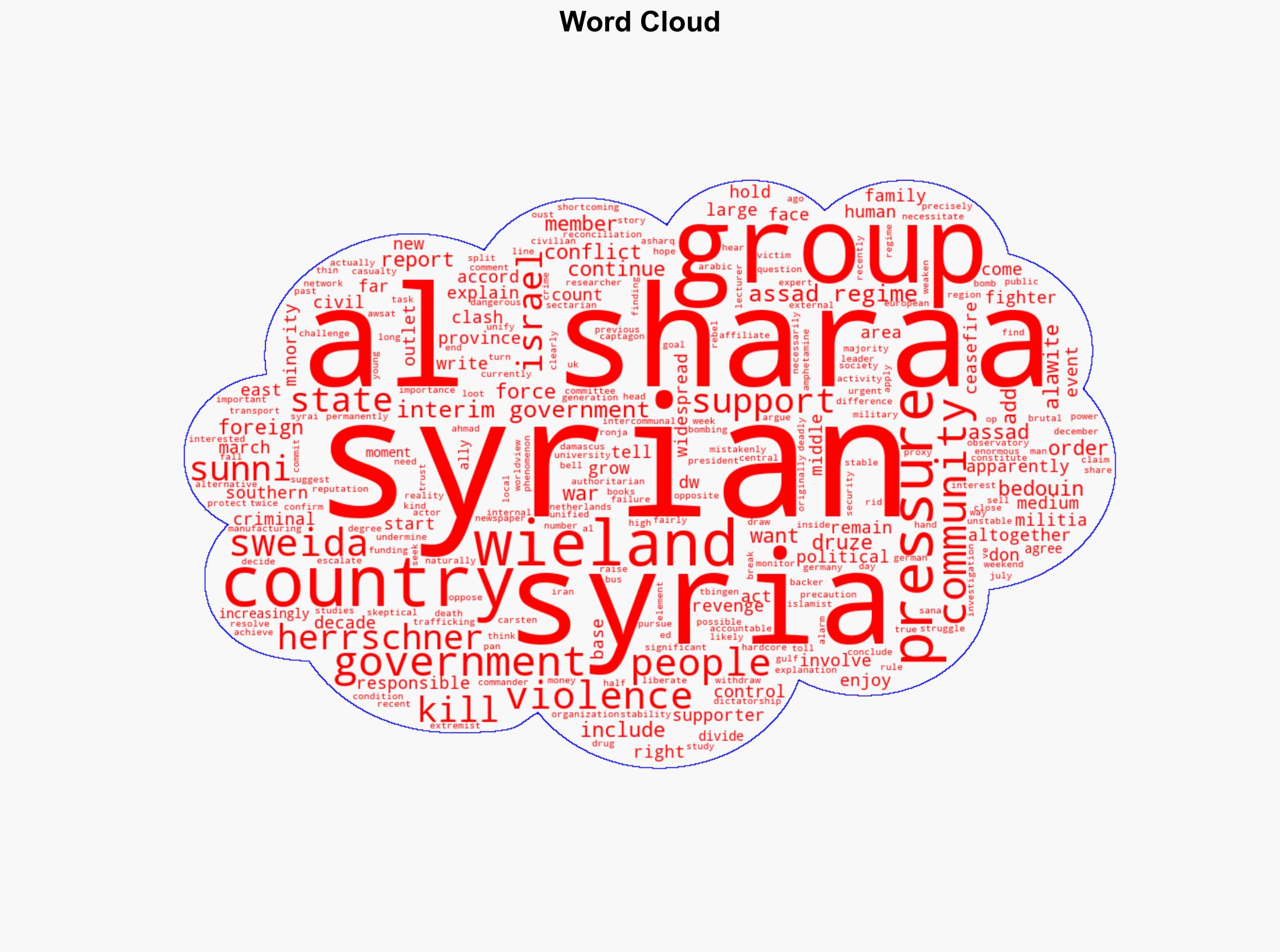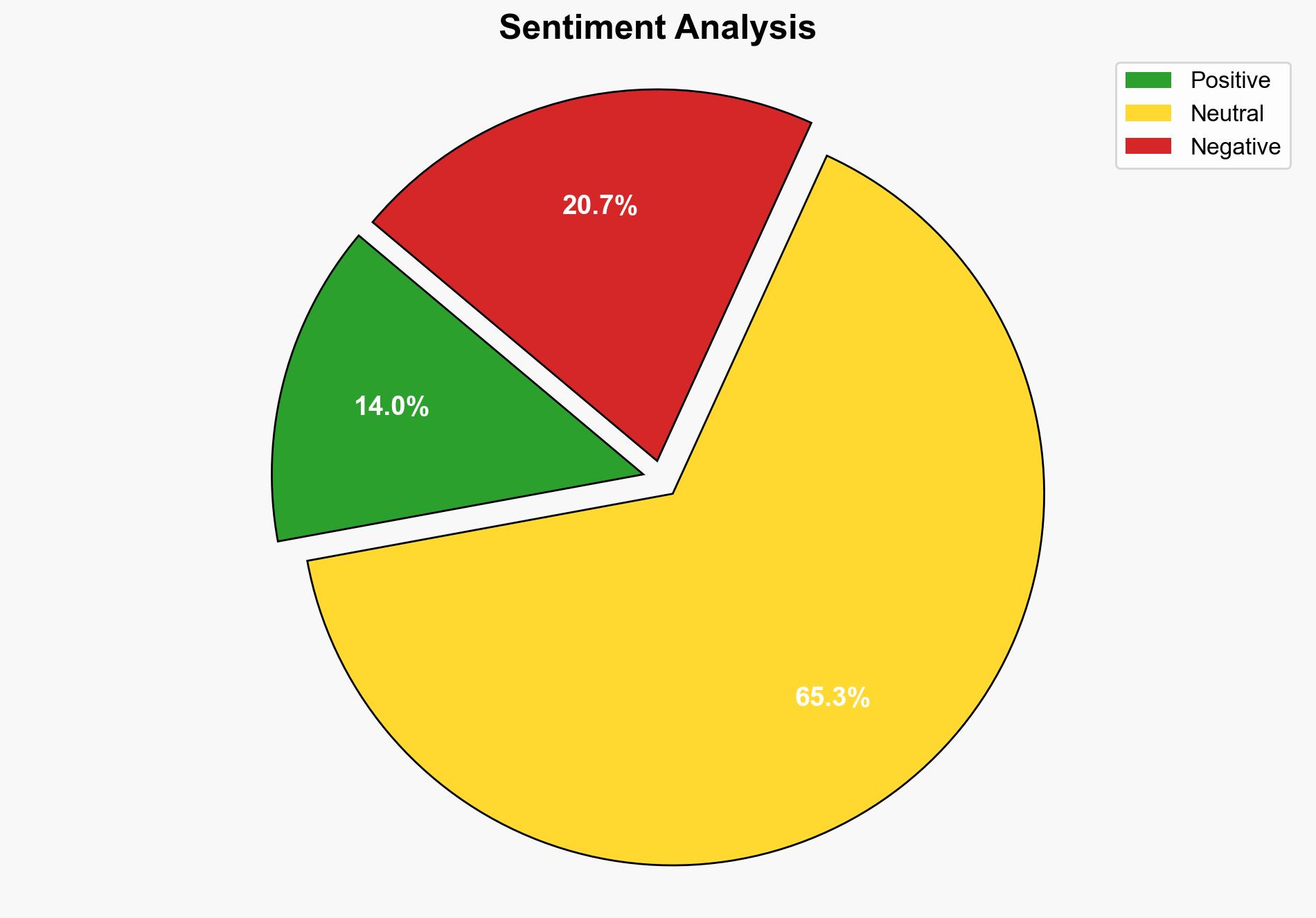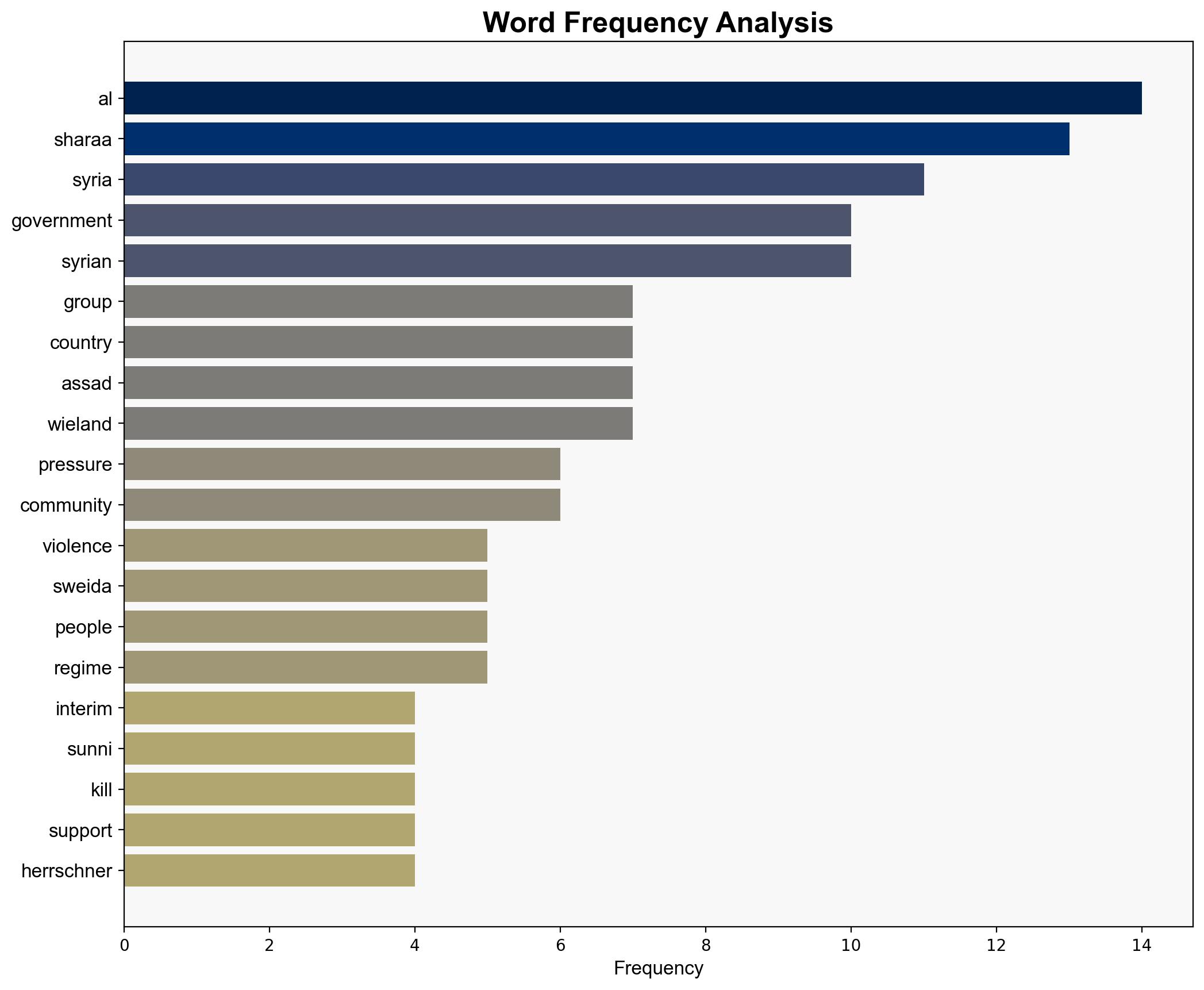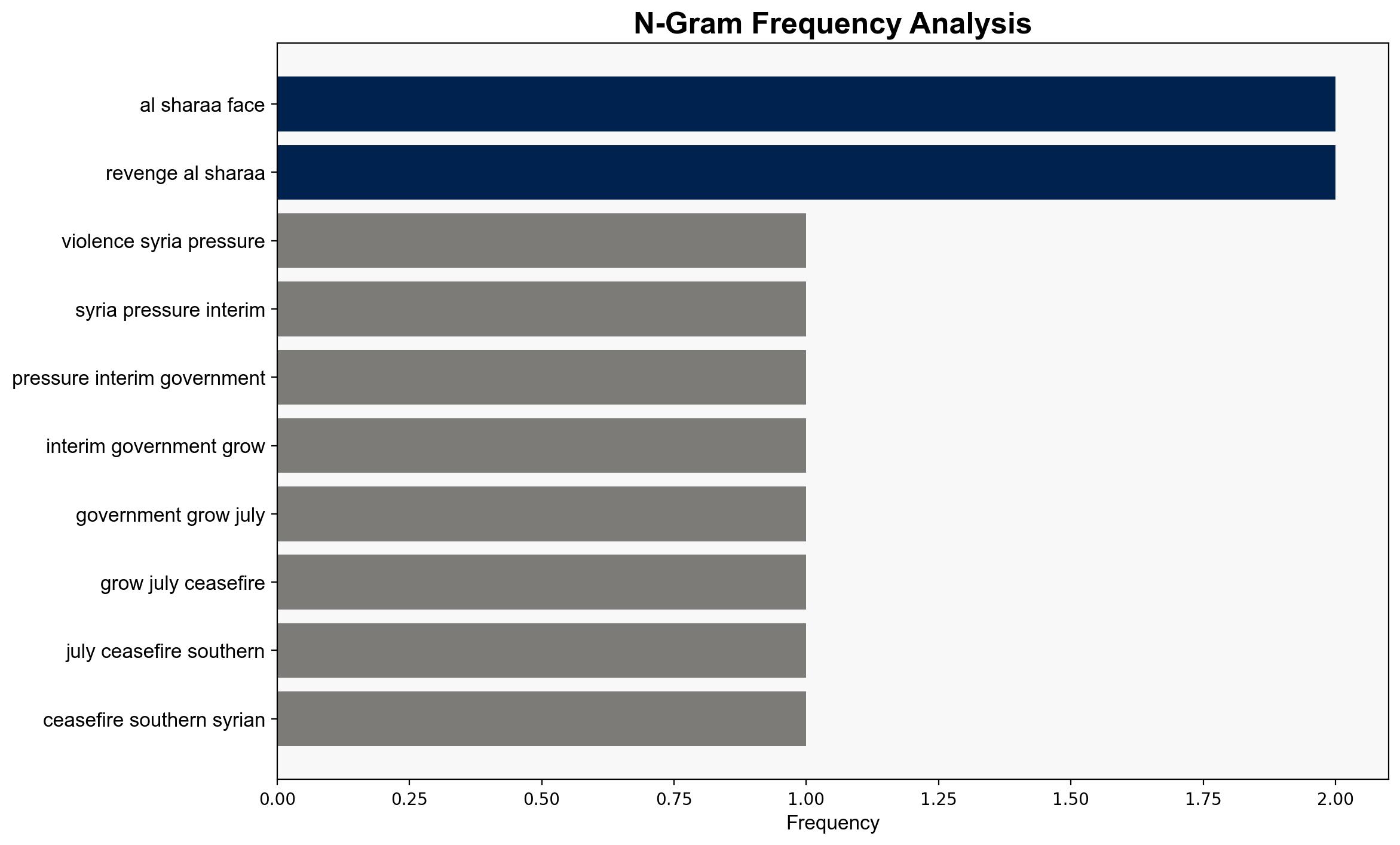Amid violence in Syria pressure on interim government grows – DW (English)
Published on: 2025-07-23
Intelligence Report: Amid violence in Syria pressure on interim government grows – DW (English)
1. BLUF (Bottom Line Up Front)
The escalating violence in Syria, particularly in the southern province of Sweida, is intensifying pressure on the interim government led by Ahmad al Sharaa. The conflict, involving local Druze fighters and Bedouin communities, has resulted in significant casualties and poses a challenge to the interim government’s authority. The situation is further complicated by internal and external pressures, including those from Assad regime supporters and extremist groups. Immediate reconciliation efforts are crucial to prevent further escalation and potential foreign intervention.
2. Detailed Analysis
The following structured analytic techniques have been applied to ensure methodological consistency:
Causal Layered Analysis (CLA)
At the empirical level, the violence in Sweida is a direct result of unresolved local conflicts. Systemically, it reflects the broader instability in Syria post-Assad regime. The worldview level reveals deep-seated sectarian divides, while the myth level underscores the narrative of liberation versus authoritarianism.
Cross-Impact Simulation
The conflict in Sweida could destabilize neighboring regions, potentially drawing in external actors like Iran and affecting regional security dynamics.
Scenario Generation
Best case: Successful reconciliation leads to a reduction in violence. Worst case: Escalation into a broader civil conflict with foreign intervention. Most likely: Continued sporadic violence with intermittent reconciliation efforts.
Network Influence Mapping
Key influencers include Ahmad al Sharaa, local Druze leaders, Bedouin community representatives, and external actors such as Iranian-backed groups.
3. Implications and Strategic Risks
The ongoing violence poses significant risks to regional stability, with potential spillover effects into neighboring countries. The involvement of foreign actors could exacerbate tensions and lead to a protracted conflict. The interim government’s inability to manage these dynamics may undermine its legitimacy and hinder Syria’s path to stability.
4. Recommendations and Outlook
- Facilitate dialogue between conflicting communities to promote reconciliation and prevent further violence.
- Strengthen the interim government’s capacity to manage internal and external pressures through international support and mediation.
- Monitor foreign actor involvement to prevent escalation into a wider regional conflict.
- Scenario-based projections suggest prioritizing reconciliation efforts to achieve the best-case outcome.
5. Key Individuals and Entities
Ahmad al Sharaa, local Druze leaders, Bedouin community representatives, Iranian-backed groups.
6. Thematic Tags
national security threats, regional stability, sectarian conflict, foreign intervention





